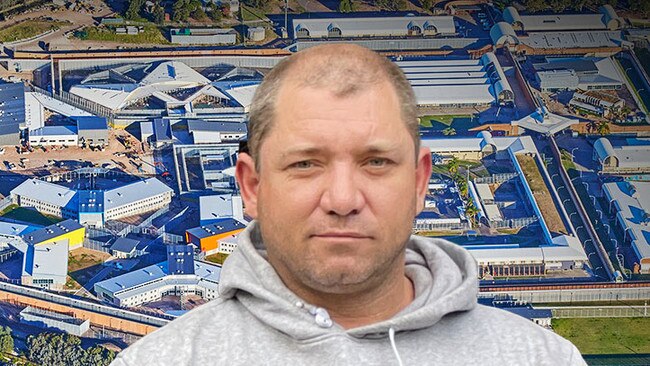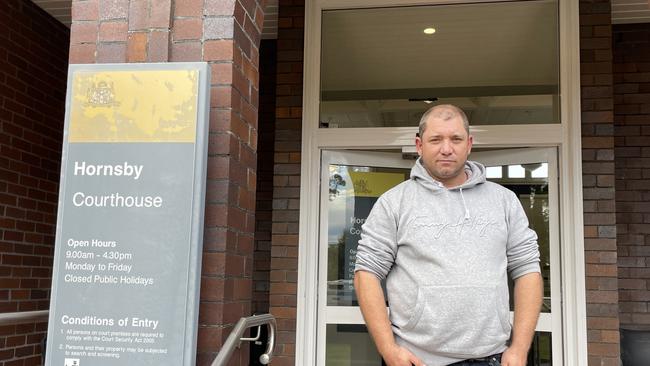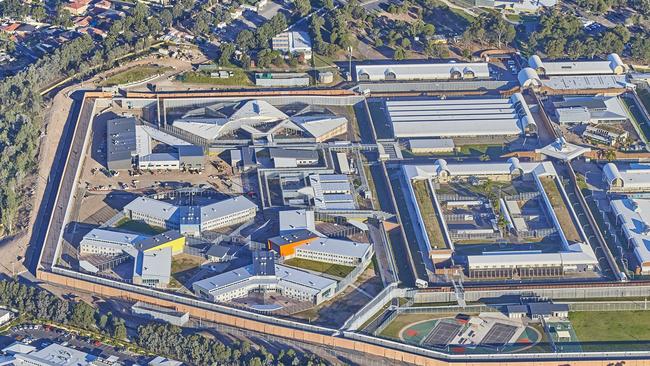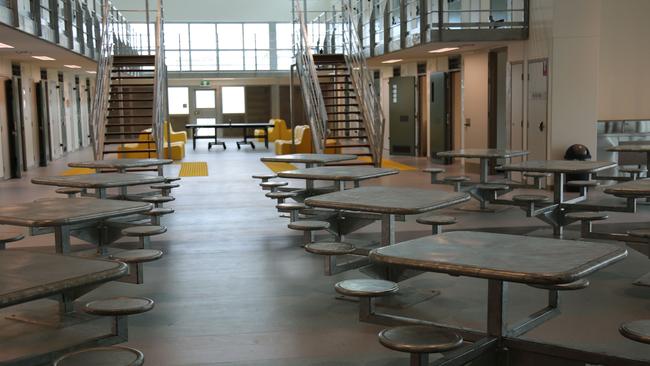Former inmate Clint Hunt reveals devastating NSW Prison rehabilitation experience
A former inmate has revealed what jail life is like, arguing the culture thrived on repeat offending and fails to provide rehabilitation support. See his experience here.

Blacktown
Don't miss out on the headlines from Blacktown. Followed categories will be added to My News.
A man who spent much of his life behind bars has revealed the hardships of rehabilitating in jail – while a criminal lawyer has voiced concern that mentally unwell inmates are flooding NSW prisons without adequate support.
Clint Hunt, 41, said the rising cost of living is to blame for an increase in larceny and shoplifting, leading poor and financially desperate criminals from low socio-economic backgrounds to jails.
According to Bureau of Crime Statistics and Research data, stealing from retail stores was up 37 per cent across two years in NSW, while motorcycle thefts were up 21 per cent.
Mr Hunt was described by his solicitor Warren Yi as a “shoplifting recidivist” – having served several jail sentences for petty crimes.
Through time behind bars, Mr Hunt spiralled down the wrong path, using meth, which Mr Yi said was “the worst drug”.

Mr Hunt said time in prison stalled his rehab progress, having been surrounded by high level crooks which bred a criminal environment behind bars.
“Jail introduces you to crime – being in rooms with worse criminals breeds more crime,” Mr Hunt said.
The former inmate said he believed more rehabilitation centres needed to be introduced to specifically aid drug users.
“Drug offenders don’t get rehab in jail – in fact, there are drugs in jail,” Mr Hunt said.
He said drug rehab programs are “mocked by inmates”, such as the Intensive Drug and Alcohol Treatment Program.
“Its hard to get on the side of wanting to get better.”
Now free from jail and on a better path, Mr Hunt is faced with a daunting set of new challenges.
“No one can afford to live, the cost of living is through the roof,” he said.
Legal perspective
Criminal lawyer Jane Meredith said she is seeing an increase in offenders suffering severe mental health and often drug problems, who are intersecting with criminals in jail.
“It’s putting pressure on police and the court system when you have people with psychosis thinking someone is trying to harm them on the streets,” Ms Meredith said.
She said jail is the final part of the cycle, with the homeless and drug crisis complicated by the cost of living.

“It feels like there are more people on the streets than ever, because who would give someone with psychosis a rental?”
She said mental health cases are a feature in the court system, arguing these matters appear more common.
“If they hear voices – they will tell you to take more drugs so they don’t hear them,” she said.
Last year, about 3000 cases in the NSW Local Court were dismissed due to mental health or cognitive impairments, up about 20 per cent from the previous year, according to BOCSAR statistics.
Ms Meredith said access to mental health support needs to be easier with more “respite” for offenders at mental health units.
“Often they’re discharged after a night – rarely are they transferred somewhere longer term to have a social worker and have medications reviewed so they can help find a house and job,” she said.

Ms Meredith said many of her mental health clients are left with nowhere to go after being granted bail, and end up on the streets reoffending.
“Police do the best they can but they have become de facto psych nurses,” she said.
She said funding for more spaces dedicated to mentally-ill inmates was needed.
“It’s a cycle that affects police, courts and the health system – from the streets to hospital beds,” she said.

District Court Judge Jonathan Priestley said studies have shown prison sentences of two years or under did not aid offenders in rehabilitation.
A Corrective Services NSW spokeswoman said they had a wide range of mental health services and interventions available to inmates.
“The welfare and rehabilitation of people in custody is always of the utmost priority,” the spokeswoman said.
A Justice Health and Forensic Mental Health Network spokesman said criminals who enter jail are given pathways, including a health assessment upon entry.
“Their physical and mental health needs are identified, medications confirmed, and referrals arranged for specialist follow-up appointments,” a spokesman said.
Justice Health said they monitor each patient’s mental health status and manage their clinical care.
“Through early intervention and prevention programs, Justice Health plays a key role in diverting at-risk individuals away from the criminal justice system, including mental health court diversion services and community-based interventions.”
Justice Health will open the state’s first forensic mental health intensive care unit located within the grounds of the Forensic Hospital later this year.
“The facility will receive patients from community and custodial pathways.”




